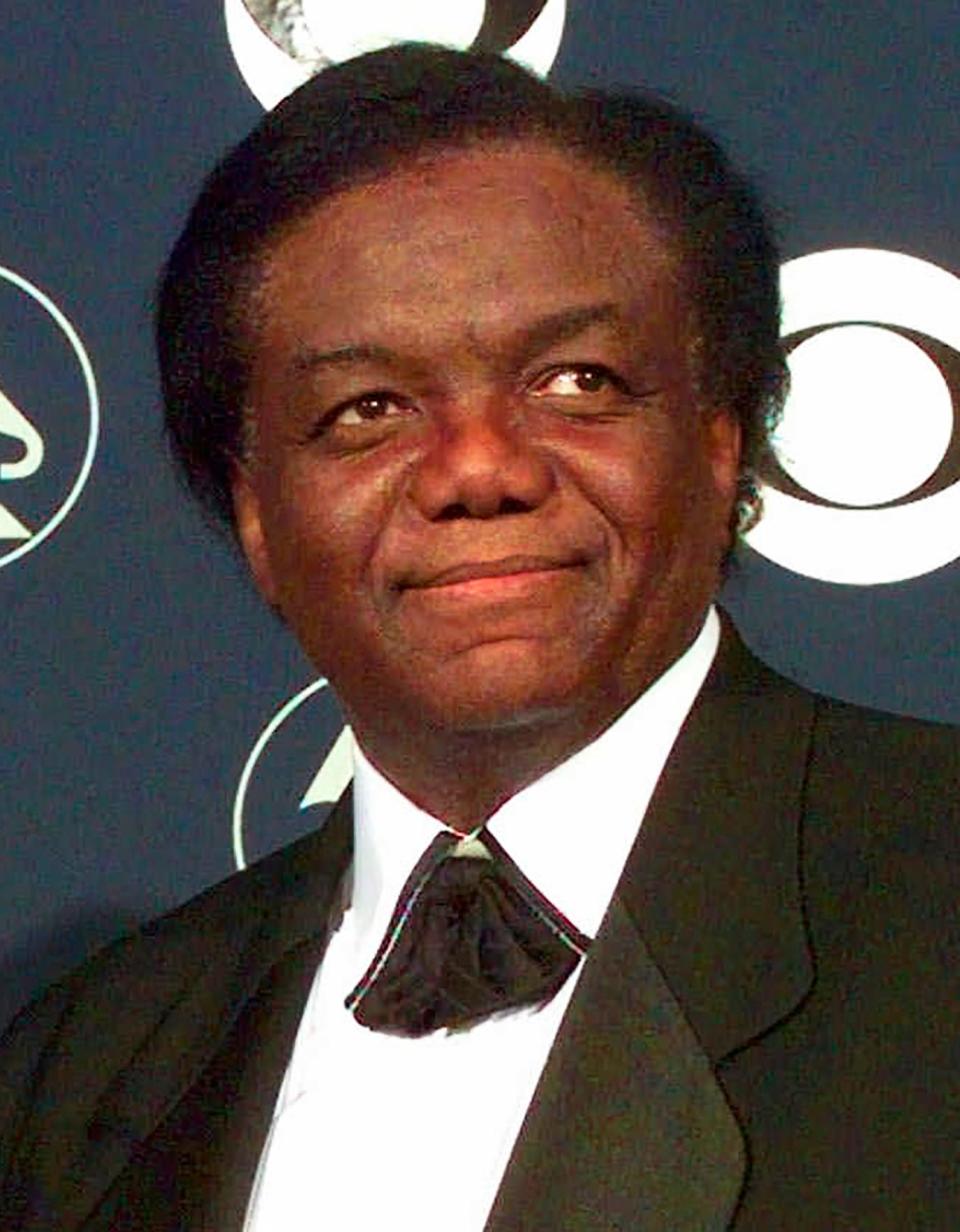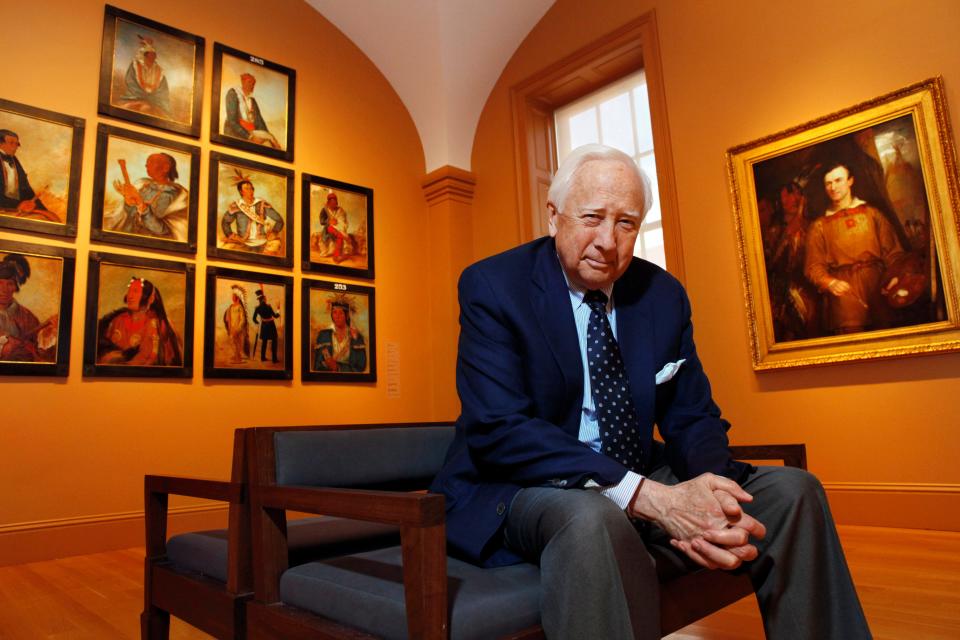America loses some of its voice
- Oops!Something went wrong.Please try again later.
- Oops!Something went wrong.Please try again later.
In the midst of all the noise and drama, it may have been missed that we've lost some important American voices who contributed to the greater good.
Though death remains the undisputed heavyweight champ, it's still hard when we lose such people as sportscaster Vincent E. "Vin" Scully, songwriter Lamont Dozier and historian David McCullough.
A sportscaster for more than 70 decades including 67 seasons with the Brooklyn and Los Angeles Dodgers, Scully was an eyewitness to moments that helped to define America's image.

When Hank Aaron, who started in the Negro Leagues because he wasn't allowed to play Major League Baseball, broke Babe Ruth's home run record, the crown jewel of baseball records, on April 8, 1974, despite a deluge of death threats, it was right and fitting that the elegant Scully, who had narrated so much of the American sports century, would be the one to illustrate the moment.
There was something comforting about the constancy of Scully. Perhaps because his iconic, instantly recognizable voice was essentially American.
Devoid of a regional accent, his optimism about America as embodied in sports shone through.
Whenever Scully occupied a broadcast booth, history was his companion.
More Charita Goshay:Belief in 'safe places' is being shattered bullet by bullet

Music was the message
You may not recognize Dozier's name, but here's betting you bopped to one of his songs.
Dozier, who died last week at 81, was one of the reasons Motown could arguably lay claim to its slogan "The Soundtrack of Young America."
Born in Detroit, he was one-third of the brilliant songwriting and producing trio of Holland-Dozier-Holland, which created such hits as "Heat Wave," "Jimmy Mack," "Keep Me Hanging On," "Baby Love," "Bernadette," "I Can't Help Myself" and "How Sweet It Is (To Be Loved By You)."
Got some songs swirling in your head, don't you?
He matters because music matters. We define ourselves by music. We marvel at how lyrics so often say what we can't.
Music can trigger clear memories of big moments in our lives. A Motown song brings me back to my childhood where the stereo was always stacked with 45s, and it always seemed like summer, and my mother, aunt and their friends, practiced the latest dances in the living room.
But hearing "Superman" by Five For Fighting always drags me back to the morning of Sept. 11, 2001, staring at the TV as rescuers searched in vain for signs of life from the hundreds of first responders lying beneath the smoldering rubble.
That's the power of music, and why Lamont Dozier's contribution to it made America a better place.
More Charita Goshay:July 4, 1776, was only the start

The American narrative
It is a point of pride for journalists not to be impressed by famous people, or at least not to show it, David McCullough was an exception.
Not Johnnie Cochran, not Laura Bush, not Janet Jackson, and, even though I was out of my depth, not even Pakistan Prime Minister Benazir Bhutto left me agog the way McCullough did, which is why I begged out of the assignment when he spoke at the Kent State University Stark campus.
You probably have to be an industrial-strength nerd to even recognize McCullough, a two-time Pulitzer Prize winner who, until his death last week at 89, was quite simply one of the greatest historians this country has ever had.
He made John Adams a flesh-and-blood human being. If it's even possible, he made the large life of Theodore Roosevelt even more so. He dismantled the myths that long surrounded the introverted Orville and Wilbur Wright, and gave the underrated Harry S. Truman his due.
With a baritone as rich and timeless as good bourbon, McCullough was the lead narrator in Ken Burns' masterpiece, "The Civil War."
We find ourselves in a time when people either want to skew the past to their comfort, or just as dangerously, dismiss it.
We think it has nothing to do with our current lives and what the country is experiencing, but two sayings remain true: "Past is prologue" and "Those who ignore history are doomed to repeat it."
We are where we are because of where we've been. Too often we fail to take serious the wise and prescient counsel that history offers us.
Scully, Dozier and McCullough have all contributed to the American narrative; one which has presented us as the standard to which the world should aspire, though if we're honest, we have not always achieved that goal.
We have the benefit of numerous examples and, yes, warnings from good people we have lost ― if only we were smart enough, mature enough, to embrace them.
When we diminish ― or worse ― or ignore them, we lose the narrative and lose our way.
Charita M. Goshay is a Canton Repository staff writer and member of the editorial board. Reach her at 330-580-8313 or charita.goshay@cantonrep.com. On Twitter: @cgoshayREP
This article originally appeared on The Repository: America has lost some good and important voices

